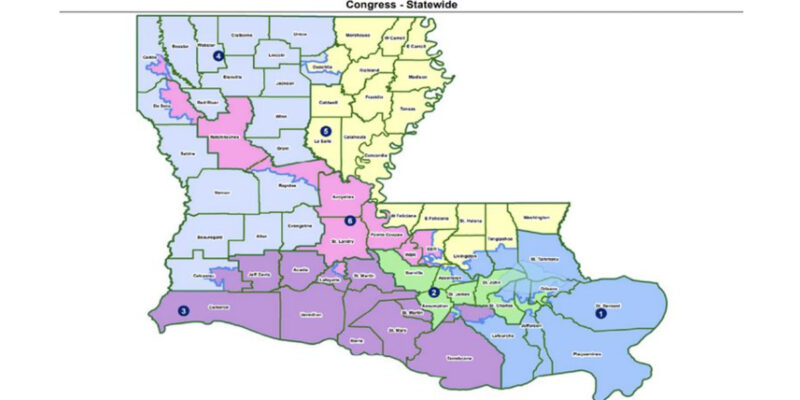It is always interesting to me when Louisiana has a case before the U.S. Supreme Court as we do now, Callais v. Louisiana. Our never-ending odyssey of congressional redistricting continues to be just that.
A brief update. Although the Supreme Court was poised, and expected, to rule upon the 2024 Louisiana redistricting map, it opted not to and instead put off ruling on the case until next year. Rather, on August 1, 2025, the Supreme Court ordered the parties to provide additional legal briefing to the Court addressing this question: whether Louisiana’s creation of a second majority-Black congressional district violates the 14th or 15th Amendments to the U.S. Constitution.
What this indicates to me is the Court wants to take another, perhaps broader, look at the potential inconsistency and tension that exists between the Voting Rights Act (VRA) and the 14th Amendment’s prohibition of racial gerrymandering.
What do I mean by that?
The Equal Protection Clause in the 14th Amendment of our Constitution requires that our laws apply equally to everyone and prevents governments from discriminating against different groups, particularly based upon their race. However, Section 2 of the Voting Rights Act, which was designed to enforce the 15th Amendment to the Constitution—which guarantees the right to vote regardless of race or color—prohibits voting practices that result in the denial or abridgement of the right to vote on account of race. This includes practices that “dilute” minority voting strength.
And it is this argument—that minority voting strength is being “diluted”—that prompted the minority plaintiffs in the Callais case to bring suit to require the Louisiana Legislature to draw a congressional map that includes 2 (two) minority/Black congressional districts. They argue that because Louisiana has 6 (six) congressional districts and 1/3rd of Louisiana’s population is black, the black population should be entitled to at least 2 (two) black congressional districts. That’s the argument under the Voting Rights Act.
However, the Louisiana residents who have brought suit to knock out this 2nd, newly-created black congressional district argue that the only way to insure that another black congressional district is created is to draw a racially gerrymandered district that meanders and snakes its way over much of the state all in an effort to find enough black voters to create the black district. That is a violation of Equal Protection and unconstitutional, they argue.
So, this is the box Louisiana, and many other states, finds itself in: our state can try to draw “race conscious” congressional districts to be sure we comply with the Voting Rights Act (and not be sued) and avoid diluting minority voting strength and enabling minority voters an equal opportunity to elect their preferred candidates. However, these race-conscious districting efforts can be challenged under the Equal Protection Clause as unconstitutional racial gerrymandering.
WOW. From a legal standpoint, this is quite a place to be. Let me close with some speculation and a recommendation.
I speculate that at some point the Supreme Court will have to either limit or strike down Section 2 of the Voting Rights Act because, in order to achieve its goal of protecting minority voting strength, states are forced to draw race-based districts which are unconstitutional. The Voting Rights Act (VRA) is a statute, and no statute trumps the Constitution so the VRA could fall to the constitutional mandate of equal protection in the 14th Amendment. If the VRA is struck down, redistricting across the nation will be affected.
I respectfully recommend that our Louisiana Legislature call a Special Session to draw a new map based upon redistricting principles the Supreme Court has previously laid out. Article I, Section 4 of our Constitution states that state legislatures determine the “times, places, and manner” of holding elections for Senators and Representatives. And, although a new map would obviously be contingent upon what the Supreme Court eventually does, it is much better to be prepared for what I believe will be, ultimately, the striking down of the current, 2024 map. In the meantime, Louisiana should act.
The Supreme Court should confirm the Constitution’s guarantee of equal protection and end the Voting Rights Act requirement of racial discrimination. This would honor and adhere to the principle inherent in Dr. Martin Luther King’s “dream that my four little children will one day live in a nation where they will not be judged by the color of their skin but by the content of their character …”
Advertisement
Advertisement

